Teenage Premier League stars: How do they balance school and football?
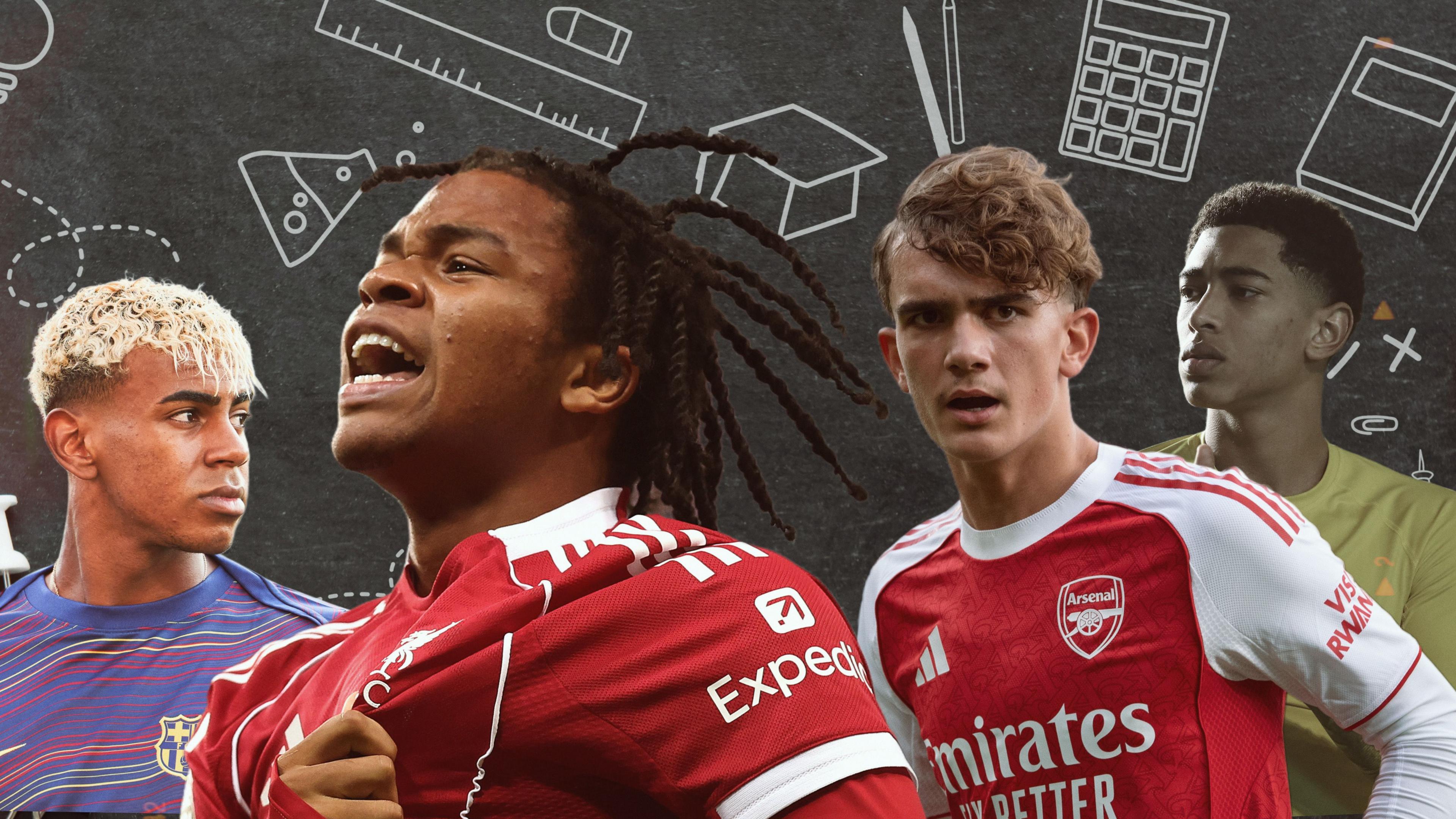
Teenagers like Yamine Lamal, Rio Ngumoha, Max Dowman and Jude Bellingham have had to balance football and learning
- Published
Rio Ngumoha, at just 16-years-old, has become the fourth youngest scorer in Premier League history after he scored Liverpool's winning goal in their 3‑2 victory against Newcastle on Monday night.
It follows Max Dowman becoming the Premier League's second-youngest player in the competition's history, as he made his league debut for Arsenal at the weekend. The 15-year-old will begin Year 11 in September, preparing to take his GCSEs.
Being a teenage footballer playing in the exciting world of the Premier League is a big adventure - but also a big challenge.
They're not just playing football - they have to manage school and studies with matches and training.
So, what does it actually involve and how do young players balance the two?
Who is Liverpool's superstar teen player Rio Ngumoha?
- Published26 August
The 14-year-old set to train with Man United's first team
- Published21 August
From Birmingham to the Bernabéu - Bellingham's journey so far
- Published31 May 2024
School and football: How do 16‑year‑old players study and train?
Balancing football and school is 'stressful' (Aug 2024)
Premier League clubs make sure their young players don't miss out on school.
Often, teens study one or two days a week at the club with a tutor or at a local college, working toward qualifications.
Last year, one young Scottish striker, Harry McLean, signed a two year contract with Motherwell while studying for his National 5 exams.
He told BBC Sport at the time: "I want to be a professional footballer until I'm 40, but if that doesn't work out, or if I get injured, or I don't do as well as I'd imagined, I feel like having an education is important.
"I'm just going to be sometimes at school, sometimes at football. I just need to balance it, I'll need to do a lot of studying and catching up at home."
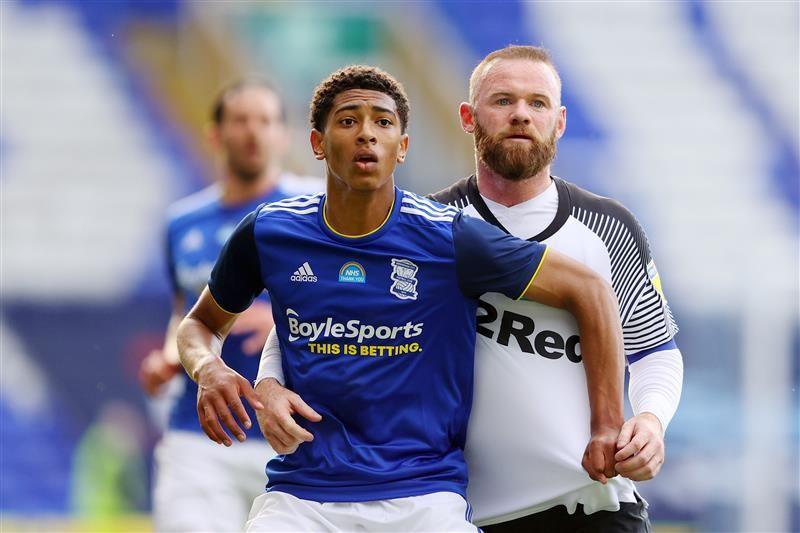
A 16-year-old Jude Bellingham facing Wayne Rooney, who famously scored for Everton against Arsenal as a 16-year-old in 2002
England midfielder Jude Bellingham was 16 when he made his debut for Birmingham City, he then moved to Borussia Dortmund when he was just 17.
Despite becoming essential to Birmingham and then Dortmund's team at such a young age, Bellingham continued to study with a tutor.
Jason Ramsay began teaching the midfielder when he left school to sign a scholarship at Birmingham City.
"His commitment to education got put to the test when he moved out to Dortmund in Germany," added Mr Ramsay. "He wanted to continue his studies when he moved there, worked hard and received some really good grades."
What's a matchday like for a teenage footballer?
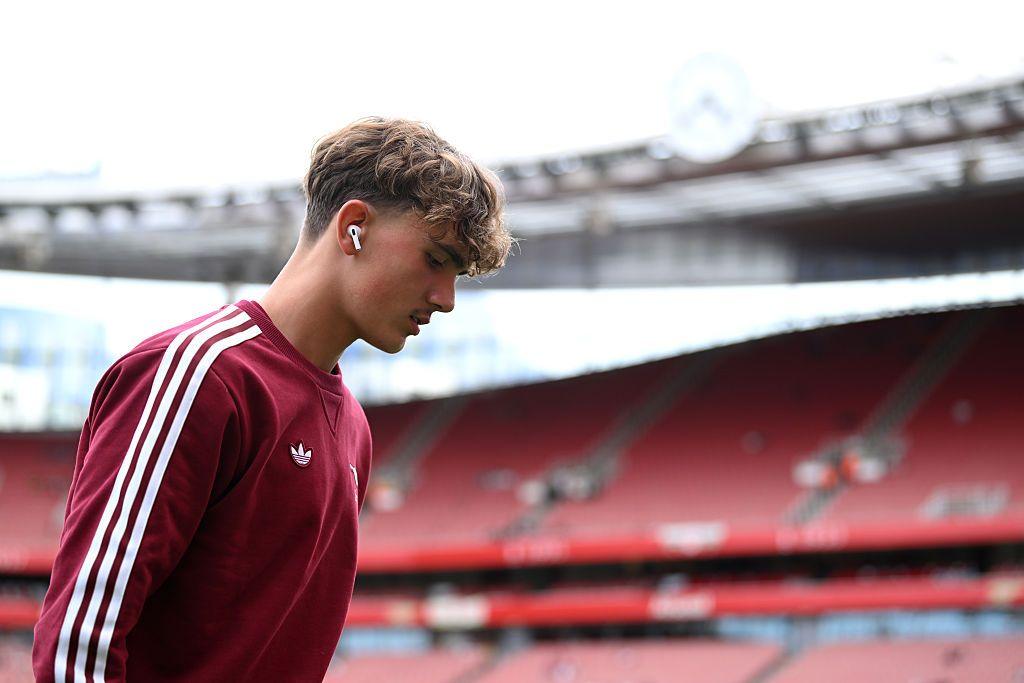
Arsenal's Max Dowman has already made a big impression on the pitch
As you have to be 17 or older to drive a car in the UK, some young players can't drive even when they have played in the Premier League.
Clubs often arrange cabs or minibuses to take young players to training and families or older players help with lifts.
As for match day travel, squads usually travel together on coaches for home and away games.
Rules for under-18 footballers mean they also have to get changed in a separate room to team-mates for training sessions and on match days.
But young players are allowed to go into the changing room when team talks are done by the manager and coaching staff.
How much money do teenage footballers earn?
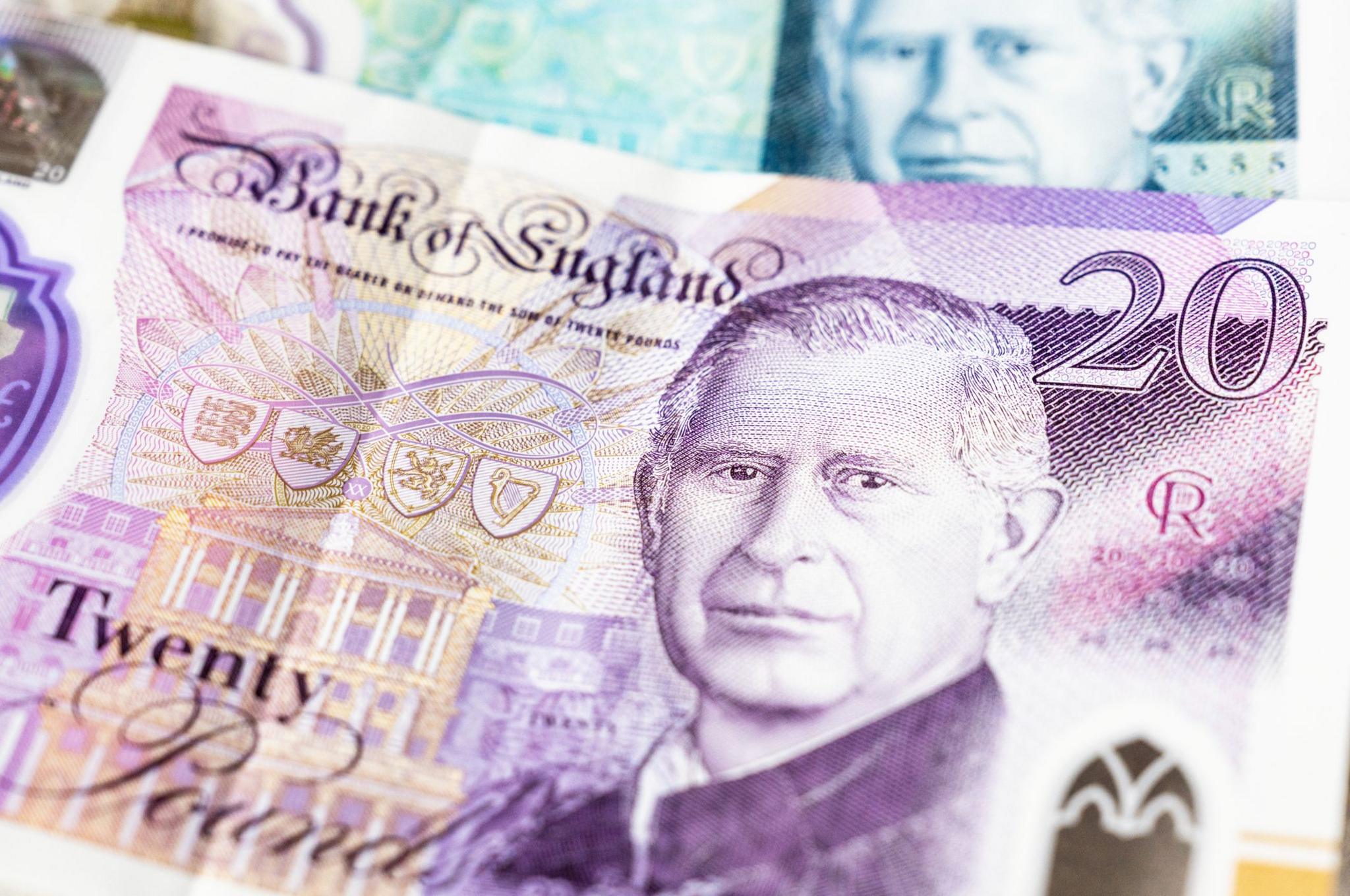
Fifa rules state young players cannot sign a professional contract until the age of 17.
Players under 17 in the Premier League are known as scholars, and tend to earn less than £10,000 a year under their scholarship.
Teenage footballers and homework
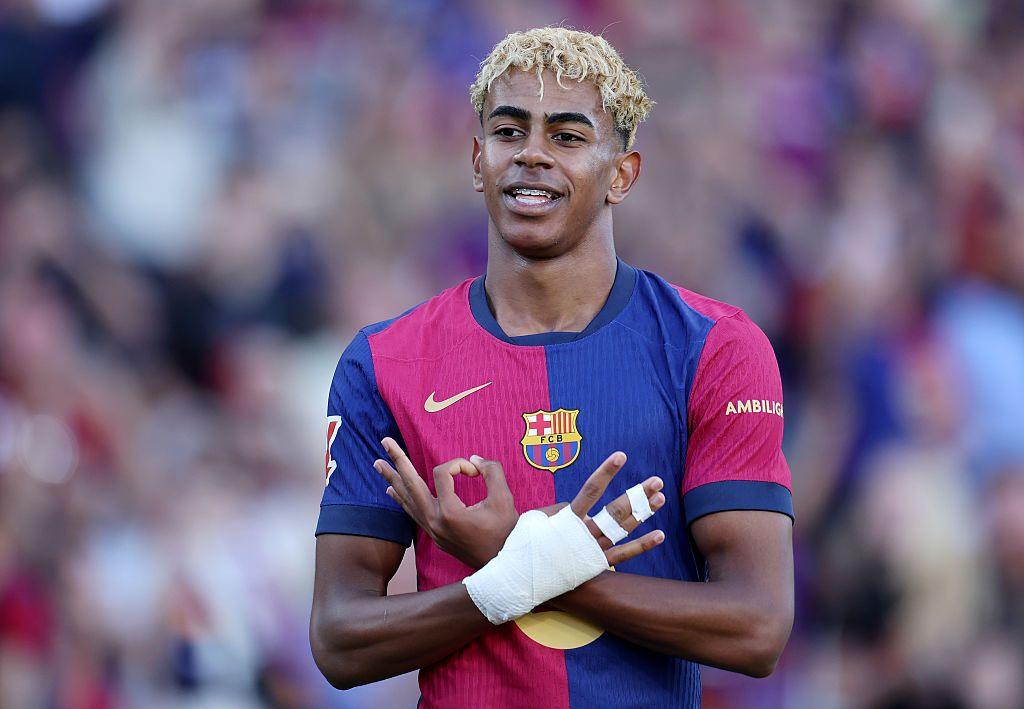
Some players take homework to matches.
The youngest ever Premier League footballer is Ethan Nwaneri, who made his debut for Arsenal in September 2022 at the age of 15 years and 181 days.
After debuting for Arsenal, the very next day Nwaneri handed in GCSE English homework - he also later achieved an amazing 98% mark in maths, despite balancing his studies and football career.
Teenage superstar Lamine Yamal, while playing for Spain at Euro 2024, said: "I brought my homework here because I'm in the 4th year of ESO (Spanish secondary school), I have online classes too and those are going fine. I hope the teacher doesn't get mad at me."
That means he did his schoolwork even while competing at one of the biggest international tournaments.
